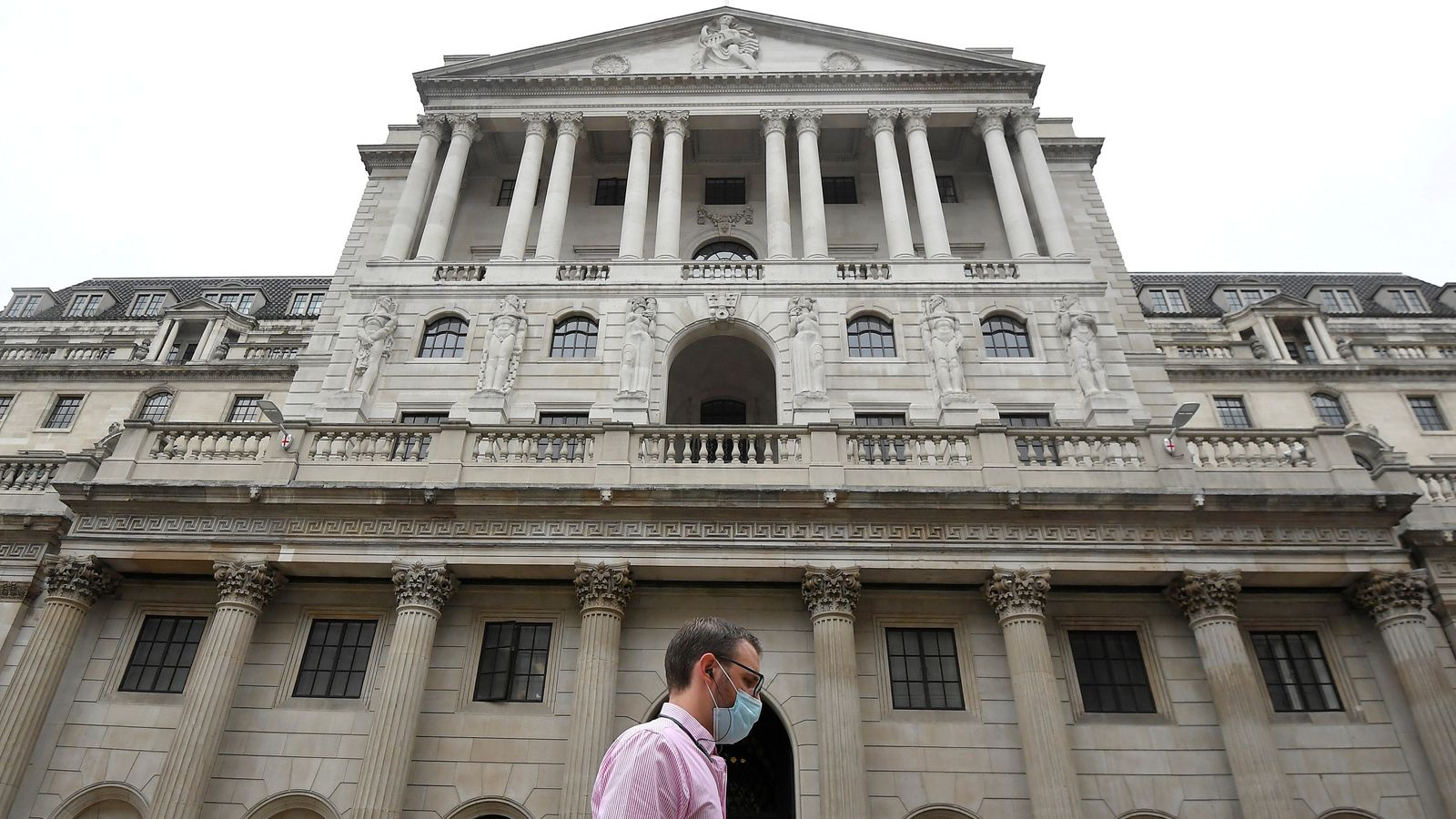The Bank of England is expected to launch another £100bn of quantitative easing on Thursday.
The move, which would take the bank’s bond-buying programme up to £845bn, is an effort to strengthen the economy as the second wave of the coronavirus pandemic continues to worsen.
England entered a second national lockdown just after midnight and the chancellor is expected to announce the economic boost later, according to a report in The Daily Telegraph.
The Bank is also expected to warn that economic recovery will take longer than first thought.
In August the Bank forecast that the economy would shrink by 9.5% this year but this now looks optimistic and analysts expect gross domestic product (GDP) to fall further this month due to continued coronavirus restrictions.
Howard Archer, chief UK economist at the EY Item Club, said: “It now looks highly probable that the UK economy will contract by well over 10% in 2020 given the imminent national lockdown in England, while the current consensus forecast for growth in 2021 is around 6% and it looks likely to come down further amid the increasing downside risks to the outlook.”
Andrew Goodwin, chief UK economist at Oxford Economics, said this month’s lockdown will be “less economically damaging than the first one”, which saw a 20% contraction in April.
Instead, he is forecasting GDP will fall 3% in the fourth quarter.
Meanwhile, the Bank is not expected to take interest rates into the negative yet, despite them being at rock bottom levels already.
David Miles is a former member of the Bank’s monetary policy committee and is now professor of financial economics at Imperial College Business School.
He described himself as “sceptical” over whether negative interest rates would be effective in the UK.
“The message that’s coming back very strongly from financial institutions and banks is ‘This is messy, difficult, and will make life hard for us’,” he said.
“There’s mixed evidence inside the Bank of England about how effective negative rates would be, so on balance you probably couldn’t get a majority on the committee to vote for it, at least not now.”
